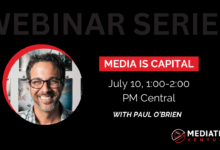
More than half the pitches I heard this past week went like this, and I want to share this to stress how significantly you should understand how this is NOT a good pitch if you need investors:
1. This is our solution
2. This is how it works and all our great features
3. We’ve sold it a lot already
4. We need a little bit more money in order to add more features and some sales people to sell it more
I spoke with half of the founders after this pitch at I admit I’m amazed and how hard it is for some founders to understand why that isn’t a great startup pitch
It’s a great sales pitch. But we’re not buying.
Here’s the problem with it as a startup pitch. I call it the “pitch dilemma” and you can think of it as a catch-22
You’ve told me the product is live
You told me you can sell it and people are buying it
But you need more money so more will buy it??
See the catch? Selling it = more money
So… Do that.
Unless there is something you’re not telling us. Something wrong.
If you’re excited that you’re pulling $10k MRR already, and you just need $50k to build even more, to close more business, and pay yourselves… Um, no.
No, because, why would you not just focus on selling, 2x as much, and have your $50k in a couple months?? Instead you want some to take a risk on you and give you the money in hopes that you just do more of what you should be doing anyway.
Catch-22s
In my experience, Product, Engineer, or Sales oriented founders pitch this way. They want to explain that what they built is what people want. And don’t misunderstand me, that can be a great [Sales] pitch to people who want it. But investors don’t want it, they want to know you’re not going to fail and how an investment is going to 15x your company, not just keep you going.
And in that Sales Pitch, you actually torpedoed your effort to convince people you won’t fail, despite having sales, because we’re now wondering why you’re not just selling it more.
A startup pitch is NOT a sales pitch!
Pitch the opportunity, the market, the team, and why you can’t easily leap from what you are to what it should be, without investment. Refer to sales as some traction, not evidence, showing you how and why you need a lot more capital to go from where you are to 15x as substantial.







Last week, I had the great pleasure of meeting Paul O’Brien over lunch in Austin, TX, together with a group of other business schools, all invited by Austral Education Group. Paul shared generously from his long experience as a tech investor and provided an Austin ecosystem backdrop, vital to the company and organization visits in the city which then ensued.
In this post he absolutely nails it, in providing guidance on how startups should prepare their pitches to investors: never sell to someone who is not buying! Instead, focus on pitching the market, your team and the opportunities within reach, once funded.
Great information for founders! Glad you shared it!
Well said Paul O’Brien!!
Would you say that in the pitch there needs to be a problem that the founders are having? We could scale if only ….?
In a sense. There are a few great advisors, Matt Cohen shares this sentiment that I have (we had this chat the other week), that Problem / Solution advice is too simplistic. I liken it to the academic approach to teaching people how to pitch; that technically, yes, you have to know the problem and solution, and state it capably, but if you ONLY do that, technical information, odds are people will:
a) disagree
b) not care
c) doubt
And your pitch fails. It’s another catch-22 or pitch dilemma: that you state a problem and valid solution, but I don’t care, so now what??
That said, you are trying to get across that *we could but* but in a positive way.
The Opportunity.
To venture investors, linear growth isn’t an opportunity. That’s what banks are for. So, if you have revenue and can get revenue, great! Go get more and be on your merry way.
An opportunity is an exponential or step-functioned growth. That, “we’re here now, but we could be there if we could only…”
That is so helpful. “we’re here now, but we could be THERE if we could only…”
If it is an investor pitch, the investor should be the hero of the story, not you. It’s not about you. (It is never about you.) It’s about the investor getting their dream deal. Their dream is to deploy money into a company with a strong possibility for exponential growth.
Richard Hansoul Haneen Salih Kwasi Safo Ayirebi
What an excellent insight.
The comment session adds to the spice. I’m privilege to be learning and improving from great minds
Avril Mulcahy
So many great points that I had to reshare – thanks Paul!
This signals a leadership issue. If the only way the leadership knows how to scale revenue is just more people or money, then there’s a process issue as well. What kind of churn requires more sales people to handle the leak in the bucket? If you have to keep scaling the sales team rather than retaining clients to maintain/grow revenue that’s problematic. Sales should be closing and then free to attract more sales. If they are only able to maintain the 10k MMR with new sales, that’s a huge red flag.
I’m with you. It seems like there are inherent problems, probably around repeat business, recurring revenue, and/or client retainment.
Excellent post. Thank you
Paul O’Brien , This is really great advice.
And there is a difference between the two for sure.
However, if I might challenge this slightly.
Founders won’t know everything. They can’t do everything on their own. They might not be the best sales people. They may even need help with completing / growing the team.
At the same time, the investors should be able to sift through what’s a good opportunity, no? After all, that is the role they choose to play.
Because a presentation wasn’t at the slickest it could be, doesn’t mean the business couldn’t flourish or the idea sucks.
My 2 cents.
Yes investors can sift through a good opportunity, and a good opportunity isn’t a great product, in demand, that the founders though can’t scale. That’s all kinds of red flags
Paul O’Brien indeed. It can be a red flag. But if the founders are coachable and open to new ideas/direction, it’s an opportunity for the Investors to add value, beyond just money.
And thereby, help turn a good opportunity into a great opportunity.
In the current climate, scaling has to be more than actually getting lots of people to use your product/service.
Anyone can do that (they simply give away cash, and everyone will use it)
Great article Paul! I think the problem is that founders have been deeply conditioned to show sales as “traction” and so it’s something they highlight. I get it. Additional capital can also be an accelerant for sales. But your point on just being focused on selling more is noted.
Absolutely, but what else is traction? Great team members, press coverage, a growing community, a major feature release, maybe even a competitor getting funding, validating the market for you.
Customers and Sales are only ONE indicator of traction, and no guarantee of success
Agreed! Well said Paul! I think “traction” (unfortunately) in some instances has come to mean “have you been able to make a sale/who’s buying your product”? I’ve seen lots of “gurus” emphasize sales as traction. But you’re spot on with the other attributes!
And yet startups with sales fail all the time. Such “gurus” should be called out on their bullshit. Preaching sales is a cop-out; it’s softball advice because it sounds right.
My favorite reply is, “great! how?” When they can’t tell you, you know they’re full of it.
As someone not remotely in the know – isn’t it well understood that sales teams and marketing improve sales? And that those things cost money? Not saying it makes it a good pitch, I wouldn’t know, but I’m not sure I see the catch 22 here.
No, Marketing teaches that Sales (people) are necessary because the product fails to capably meet customer expectations on their terms.
So saying sales teams improves sales is kind of an oxymoron, if that’s the right word. That sure, obviously having experienced sales people in place improves the effectiveness of sales, but you shouldn’t need those people at all, if your marketing is exceptional.
Okay so, does Marketing cost money? No… If you know or have someone who knows what they’re doing. Advertising and promotions costs money, Marketing is just a matter of knowing how to do it well.
And so founders who pitch “great product!” “Selling!” “But we need more money to do it…” Clearly aren’t marketing because marketing would have uncovered how to build the product to sell itself, and/or how to easily get more sales, since it clearly is sellable.
Without marketing, we know you have massive risk for investors.
Catch-22
Investors are likely saying focus on customers and get more sales. So you prove you can by doing it. But then they aren’t going to fund *that* because if you can do it, do more.
None of that should be taking place in any event, hence we know the pitch is poor to investors.
Paul O’Brien thanks for taking the time to break that down and explain. As I said, definitely not my area haha, but what you say makes sense. I wasn’t thinking deeply enough about it.
Wait. “Okay so, does Marketing cost money? No… If you know or have someone who knows what they’re doing. ” Hang on. Just. One. Second. If we use this logic, then Product doesn’t cost money either. Neither does Legal. How about UX/UI? Just one more thing to learn, no problem, you can do it yourself. (no, please don’t.) I am surprised you said this since a lot of what you write about is about founders missing their mark with the marketing part, What gives?
Ada Ryland great point, I’m always cautious to add, “if you / they know what they’re doing.”
Of course, such people need to be compensated; so, we have to start by disregarding that consideration. That’s true of everyone and we’re not here making a case about getting labor for free; we’re asking about the cost of the work of marketing.
Then we have to keep in mind our context here: startups. The two most important and valuable things a startup can do are Marketing and Innovation (not my observation, this is long studied to be fact).
So as a founder, you can and absolutely should be prioritizing marketing above all else, and it doesn’t cost money (if you know what you’re doing).
“Everything else is a cost”
Can you get representation in court without paying for it? No. Can you host cloud infrastructure for your app without paying for it? No (well, that’s not really true, you can)
But, can YOU do market research on Google? Start a Facebook community? Write articles to assess the market? Have coffee with 500 people? Create a landing page and build an email newsletter?
Without a budget. Of course, you can.
Advertising costs money. Advertising is something marketing does having determined that the cost is worthwhile.
A lot of founders will try to raise capital to DO marketing (or hire Sales), and to put it bluntly, investors look at those founders with shock and concern.
YOU do the marketing, otherwise, you don’t know anything else about what you *should* be doing. And if YOU aren’t, and you just want to pay for it, you’re neglecting, or worse destroying, all the value it creates.
Would you say the pitch you described is better suited for a debt finance round instead of equity Paul O’Brien?
100%
Pitch to your audience: customers, potential hires, investors, partners, etc. all require a specific pitch targeted just at them. There will be common elements but used differently depending on the audience.
This post comes at a very appropriate time! Thank you. Will think on this….
“Unless there is something you’re not telling us. Something wrong.”
Not that it’s the same thing but my parents like to watch Shark Tank, so I share that moment with them. The issue/question you raise comes up all the time. And it’s pretty much the same answer to the pitch, “…I don’t see how I can recoup my investment + an acceptable return…”
Great stuff, Paul.
Michele Sciabarrà
Learning so much from the School of O’Brien!
Keep posting, I’m takin’ notes
Thanks for this. Great message and will definitely help me in the future.
Great advice and well stated.
Well said
Makes absolute sense from process/psychology pesrspective for sales vs investing
An exercise of putting yourself in the shoes of the person in front of you always gives plenty of inisghts
Yup. If you’ve got a proven model and just need a bridge, that’s what banks are for. Why would you give up a huge amount of your company for something that simple?
Richard Stanford precisely what I kept telling people. AND not having the bank loan or just using your own credit, further begs a question of a problem. With revenue, and bookings, you can easily finance a reasonable amount of money. Yet you’re not, and you want an investor who will want to own part of the company and have a say??
You can take short-term private loans from investors with a friendly interest rate. We did this when we had PO’s from our customers but needed more capital to manufacture the supply. Even though the risk is always there, it was relatively low and our investors just wanted to support us in whatever capacity. We earned their trust and we didn’t give up any equity at the same time
This was early on – later as needs change founders should consider VC $ (highly varies depending on what they are building).
Richard Stanford because new businesses aren’t bankable without three years of tax returns minimum. Generally.
E Aaron Cartwright III that’s what personal guarantees are for … either that, or the “add money get sales” is revealed for the not so sure guess it is – and to Paul O’Brien’s point, if that’s the case you’re making the wrong pitch.
Matt McGinnis…
Entrepreneurs who meet with investors should never forget what they’re selling: stock.
Respectfully, it was 10x a year ago, now it’s 15x. Startup founders have their marching orders from advice like this but can investors and middle men stop with the insanity of ROI expectations?
E Aaron Cartwright III not if you expect them to take the risk.
Paul O’Brien is right as usual. VCs fail frequently. Of all the VC firms in Austin when I moved here, absolutely none still exist.
Matt Cohen that is absolute insanity. That’s proof positive that the business model needs to be revised, not some accolade for the industry.
E Aaron Cartwright III most VCs say 20x
It hasn’t changed. 10x is what is familiar to people because it’s closer to the average actual outcome. My 15x here is colloquial, just to split the difference for the sake of a helpful post.
You shouldn’t take it as a challenge or frustration. If what you’re building isn’t capable of 20x, there are far cheaper sources of capital than VC. VC is meant for those kinds of opportunities, not merely successful ventures or any business making money.
I’d add… 15x isn’t outrageous. When most money invested is lost in failed startups, that’s the kind of ROI needed for VC to even exist, and fund anything – that’s what it takes to overcome the losses.
Venture Capital Fund returns average 10%-15%. IF successful (tons of VCs fail and disappear).
They aren’t getting stupidly wealthy, they’re taking on the massive losses so founders can even get that kind of capital investment.
Paul O’Brien not all money is good money. 20x to cover losses is an almost usurious expectation. Perhaps those investors should be a little bit more diligent because it sounds to me like there’s a problem on their side. Massive raises by the funds for the fanfare that counts with it followed by a slew of unwise investments leading to failures and expecting the few that can make it to cover the losses is a hallmark of the insurance industry.
You can’t sit here and tell me that something isn’t horrifically broken in what you just described. Someone writes a little bitty $25K check and expects $500K back?!?! LMAO. Three years of doing $15,000 per year as a side hustle makes a business bankable enough for that kind of capital as a line of credit.
At what point does the expectation get so high that literally no one turns to VC for capital?
E Aaron Cartwright III when startups stop failing at a 90% rate, and the cost of money stabilizes, there will probably be a reset of expectations. Until then, any founder that doesn’t agree with the current VC model and process is free to seek other funding sources. Or, and here’s a novel concept, hustle and find a way to build it with early adopter customers helping to invest in the development. There’s a ton of capital in the innovation ecosystem that doesn’t sit in a VC fund.
Or perhaps more founders should recognize that there are big ventures more likely to fail… And that the source of capital for those isn’t the same as the ideal source of capital for other ventures.
Maybe VC isn’t wrong but works precisely as it should, for the kinds of things it is designed to be available for. It does get a 10-15% return which is better than anything else but real estate. Why presume it’s flawed?
Paul O’Brien for the same reason I presume a glass cannon is flawed. If it destroys itself on first firing, how useful is it really? It’s a cute art project and that’s it. If the VCs are constantly getting into bad projects, I can’t help but think it needs some revision. Or at least enough change to where a $25K check shouldn’t be stared at for a $500K return.
E Aaron Cartwright III again that doesn’t make any sense though, a glass cannon clearly doesn’t work – VC definitely does.
Maybe compare it instead to the cannon on an old wood clipper ship.
Would that cannon work to defend a castle? Or used in the Civil War to scattershot oncoming troops? Would you use it to lay siege to a city?
No, it’s not designed for that; it’s designed to put holes in other wood ships at sea.
VC gets a 10%-14% Return on Investment. That’s exceptional. Why do you keep trying to say it gets in some bad projects and therefore it is wrong? It seeks outsized returns so it can ALSO fund all the things that need to be tried but will likely fail. That’s not wrong.
VC isn’t business capital. It’s not meant to support businesses making money. It’s meant to fund hundreds of founders, most of whom will fail because that’s the nature of startups; and out of those failures, it needs some success otherwise it won’t exist at all.
If you directed VC at only proven, sustainable, successful businesses, the ROI would be closer to 6% and there would be no capital willingly risked on the high-risk sector of our economy that is supported by VC.
It doesn’t need revision; it needs people to understand the role it is meant to play and stop expecting it to be something it’s not.
So basically be honest? I built a couple of startups but never went the investor route and plan to do that in the future. There’s plenty of books about pitching to investors but this post summarizes the best advice
Good advice for pre-seed/seed. But, if you already took any VC for your seed, the costs to scale for the growth expected for the A+ rounds are high. Especially if you are going down the path of grabbing market share as fast as possible (Amazon vs Ben and Jerry’s model) as most VC backed companies are.
This is incredibly insightful
Paul – Thank you for taking the time to share your insights on how not pitch investors – I really appreciate it!
As from the previous thread – this is a bridge loan pitch. Or it SHOULD be if it’s accurate.
Great intel Paul!
Honestly read throuh the first third and then I wanted to venture out on the thesis. If it works…why are you asking for money…Am I on it?
This is one of the most insightful comments I’ve seen from an investor. Some opportunities present a step change that only an investor can unlock.
As a founder pitching a step-change concept, I’m familiar with the contradictory advice to (a) outline a genuinely new idea in 124 characters, or less (b) demonstrate precedent and traction and (c) explain why nobody has come up with your innovation before…
In our case, the answer is simply: funding. The investor unlocks the opportunity.
Actually, it’s worth turning the question around. Why do so few investors appreciate that?
This is such a wonderful and important question Ike Udechuku that I just had to take a moment now to address it. It’s important because society today has a hate-affair going on with VC. Lots of people saying, “VC needs to change,” or frustrated that VC isn’t funding their seemingly successful businesses.
You know what I’m talking about, there is a LOT of criticism of how VC operates.
So, let’s unpack that. Why aren’t they funding so many of these ventures that have traction??
There are MANY sources of capital: grants, loans, revenue-based financing, crowd sourcing, and more. Venture Capital isn’t meant for every type of business – it’s meant for the things more likely to fail: “startups.”
Let’s say I have a $15M fund (unheard of as that’s too little to operate well, but let’s use it to simplify how it works).
We’re going to invest $1M in 15 startups. Keep in mind, that’s other people’s money; it’s a fund, we have to deliver to THEM a return on their investment.
Most businesses pitch that they have traction and customers. That they’ll succeed. And they might; but 60% of all businesses fail within 5 years and 90% of startups fail within a few. So from where are we getting our return to investors?
$15M invested in 15 startups
10 are going to fail. Gone. No return. No money.
I need to get $20M back to investors in order to have a positive return on the fund. A successful fund. A fund in which people will invest again — so that we have more money to deploy to startups.
$10M of our $15M is gone. Poof.
Say 5 actually work out but reasonably speaking, given averages, only 1 will deliver a big return.
We need ONE out of 15 to deliver that 20x return.
That, out of $15M invested, we need $20M back from somewhere and if 10 fail, and a handful actually do okay and survive, we’re still seeking ONE, out of all 15, that can deliver a return to OVERCOME the losses.
OVERCOME THE LOSSES.
If the business is going to be successful, get a loan. We’d expect you to; that capital is less expensive so a wise founder would do that. If you can turn your $1M ARR business into $5M in a few years, GREAT! But that isn’t a company capable of exiting and returning 20x what was invested!
How does that $1M investment return $20M? It has to be far more valued than $20M. It has to be far more meaningful than growth from $1M to $5M in a few years.
Step functions. We’re going to grow from our $1M to $50M because your investment will enable us to do X, something we can’t do on the trajectory we have.
That’s not wrong.
That’s not a broken model.
That’s not VC needing to change.
That’s how it works and why it works the way it does.
If you need capital to get from 1-5, there are MANY sources for that. If you want VC, you have to show that you can get from 1 – 50 so that the investment delivers from $1M in, $20M back.
Traditional businesses generally don’t (can’t) do that. Startups can. Pitching that you’ll be successful and get to $5 doesn’t overcome VC reservations. It’s not that you’re wrong, it’s that it is insufficient and there are better sources of capital for what you’re doing IF you aren’t the kind of startup that can achieve such outcomes.
I love the spirit of this post, but I disagree heavily with this line: “A startup pitch is NOT a sales pitch!” It truly is. It’s just different.
I do agree that people don’t know they are different sales pitches.
What you are selling to investors is the pot of gold, which will happen 5-8-10 years from now, not what you have or will have in one year.
As an infinite learner, I’m happy to engage if I’m mistaken.
You’re not wrong. In fact, I usually teach that a great pitch is a pitch that gets everyone engaged, from customers to investors, to your grandma and that 12 year old kid.
Yet, we also experience that it often takes dissonance to make people understand something. That, “you have to stop selling the product!” You’re selling stock in a company. I’m not buying how great your thing is, I’m buying company that will deliver exceptional returns. The product sales pitch is not the best you can do.
Paul O’Brien We agree 🙂
I have seen startups fail time and time again that has a groundbreaking offering because they ignore this fact. As a consultant with passion for startups, I now walk away from companies who’s leader does not embrace this fact. Thanks for pointing out this critical differentiator, Roberto Inetti
Paul O’Brien common shortcoming of several pitches you heard = experience without the reps = solid gold. Thanks for the post.
Sure. But unfortunately, different investors think differently and only a handful really seem to know what they are really interested investing in. That’s why the great idea of investor specific pitch is useless. Its a great idea but useless unless the sratup has a very wide bandwidth
Who said investor specific pitch? A great pitch appeals to everyone. A sales pitch only appeals to people who might want the solution.
I called it a startup pitch, and if you’re pitching a startup, stop pitching a solution with customers and start pitching why the venture is a worthwhile investment.
I think a Strategic Business Roadmap-type pitch that maps to a new world be a great tool to have in making the point to Cuban and other sharks. However, don’t most sharks and nest eggers want to build a cash flow that builds a nest and lets them move on to another hot opportunity/feel-good problem to solve/dramatic story to tell after cashing out… rather than taking on a moonshot? Who wins the race – the tortoise or the hare?
My two cents, when it comes to startups, tortoises and hares win, it’s not how the race is run but who is trained for, experienced with, and flexible about how to race it, so that they don’t quit along the way.
TikTok was a relative hare while Microsoft a clear tortoise
Founders who set out determined about HOW to win the race, or only focused on the shoes, never reach the finish line.
Amen brother! Most entrepreneurs dont’t know the diffference!